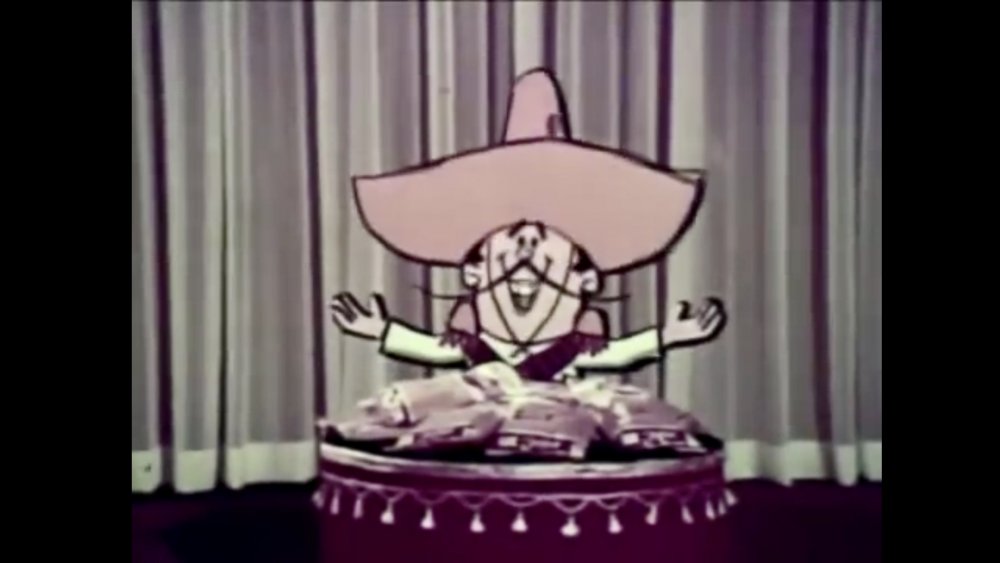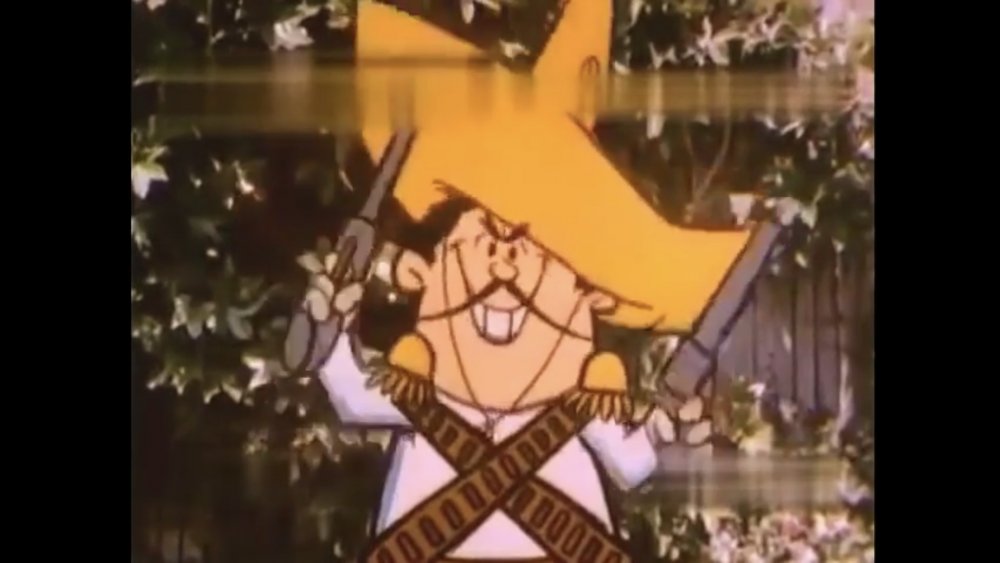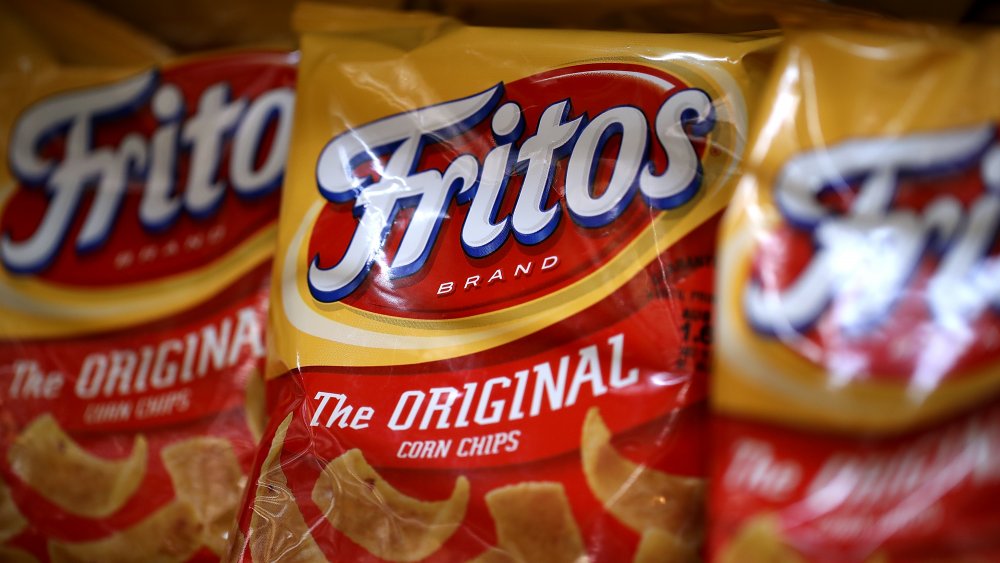The Real Reason Fritos Got Rid Of Their Mascot
Fritos did not get rid of their Frito Bandito mascot because they wanted to; it took a lawsuit claiming Frito-Lay's cartoon mascot, depicting an unwholesome Mexican stereotype, defamed the character of everyone in the US with Mexican heritage. The lawsuit sought $100 in damages for every person with Spanish-speaking ancestry in the US and was asking for $610 million total (via The New York Times). But in January of 1971 (the same month the lawsuit was reported by The New York Times) Frito-Lay finally retired the Frito Bandito, according to the book A Short Course in International Marketing Blunders by Michael White, after years of the company resisting criticism and hanging onto the Frito Bandito. He must have sold a lot of corn chips.
Frito-Lay initially introduced the Frito Bandito in 1967, a few years after their merger with the Pepsi-Cola Company (via Manufacturing.net). Retroist states that the Frito Bandito replaced Frito Kid, a blond cowboy-child seen in ads lassoing people into having Fritos chips with their lunch. The Bandito, according to Toonopedia, was outfitted with a sombrero and bandoleras full of bullets, and was voiced by Mel Blanc of Bugs Bunny fame. The early version of the Frito Bandito also featured beard stubble, a gold tooth, and a pair of six-shooters. He had only one motivation in life: to steal your bag of Fritos. Who knows why Frito-Lay decided to replace a kid cowboy with a Mexican bandit — if the Frito Bandito was an attempt to lend authenticity to a product inspired by a Mexican snack, then the company really missed the mark.
Frito-Lay said Mexican Americans weren't offended by the Frito Bandito
Two groups, the National Mexican-American Anti-Defamation Committee (NMAADC) and the Involvement of Mexican-Americans in Gainful Endeavors (IMAGE), asked Frito-Lay to retire the mascot (via Mel). The groups said the ad campaign carried the "racist message" that Mexicans were "sneaky thieves," according to a paper published online by Austin Community College. A Short Course in International Marketing Blunders quoted a Frito-Lay executive out of a Newsweek article from that time: "We don't need the flak if the Bandito wasn't selling Fritos," but the Bandito must have been doing his job well, as Frito-Lay accepted quite a bit of flak. Even decades later, Frito-Lay seemed to stand by the mascot. The paper from Austin Community College quotes Frito-Lay spokeswoman Lynn Markley, who wouldn't discuss the Bandito except to say, "We ended the Frito Bandito [campaign] several years ago — even though it was well received."
Back when the Frito Bandito was still featured in TV commercials and magazine ads, Frito-Lay surveyed Mexican-Americans about the mascot. They used that survey to claim that 85 percent of people of Mexican descent were okay with the cartoon character, and only 8 percent were offended (via Dallas Observer). "We will continue to survey, and any time we find we're offending a substantial group of Mexican-Americans, we'll be the first to take the Frito Bandito off the air," a Frito-Lay press release said, according to White's book.
Critics of Frito Bandito asked for the ads to be pulled
In an attempt to appease critics, Frito-Lay gave the Bandito a shave, erased the gold tooth, and put away his guns (via Toonopedia). The guns were deemed insensitive after the assassination of Senator Robert F. Kennedy, according to Mel. The activist groups weren't satisfied with Frito-Lay's survey or their superficial attempts to tone down the racism. According to White's A Short Course in International Marketing Blunders, the two groups went to television stations in Los Angeles and San Francisco, and two "major market stations" responded by agreeing to pull the Frito Bandito commercials. Then the two groups announced they would file a complaint against Frito-Lay with the Federal Communications Commission. Frito-Lay responded by announcing the Frito Bandito's retirement.
One year later, however, the Bandito was still up to his old tricks on television, even on the California stations that had agreed to ban him. Frustrated, IMAGE and NMAADC filed their infamous $610 million lawsuit. According to White's book, Advertising Age magazine indicated public opinion was beginning to turn against Frito-Lay, when they called the company out for "its lack of corporate good faith." Toonopedia states that the Frito Bandito was succeeded for a short time by The Muncha Bunch, only to be replaced by a new mascot, W.C. Frito. Frito-Lay must have decided it was better to go with a mascot inspired by a dead actor, alcohol loving comedian W.C. Fields, than to stick with the Bandito. Fields was a vaudeville star known for hating children and dogs (via Britannica).


